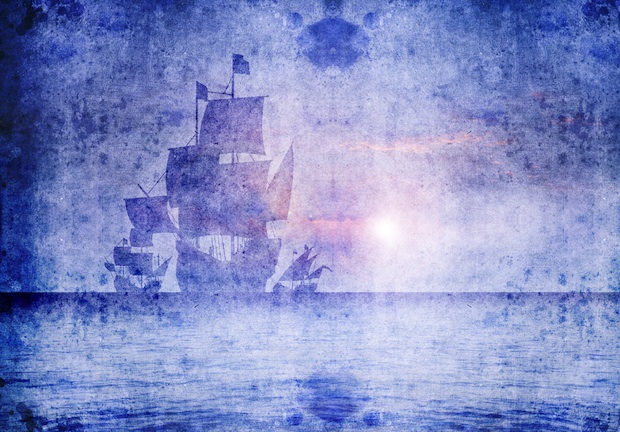October 12 is Columbus Day – a day to celebrate Christopher Columbus’ 1492 arrival in the Americas. The holiday has been observed annually in the United States since the 1970s, every second Monday in October. But many are asking, should we really be celebrating this event?
After all, Columbus’ arrival took a terrible toll on indigenous peoples (as did the arrival of many explorer-conquerers who followed). Anti-Columbus Day critics point out: These Europeans brought diseases, oppression, slavery, coerced conversions and a host of other tragedies to the indigenous communities they encountered. And that’s all true, to one degree or another.
I don’t need the Christopher Columbus story to be flawless in order to celebrate it.
Of course, it’s also true that – with the exception of coerced conversions – indigenous peoples were doing all of those things to each other already. None of which is to say that the ugly consequences of European exploration and/or conquest should be forgotten – but neither should we forget the larger North American story that includes those tragedies.
No, this isn’t where I’ll unfurl an American flag and get all one-sided patriotic about why all of the genuine opportunities, accomplishments and freedoms we enjoy are every bit as much a part of the Columbus story as detractors would have us forget. I could, but I won’t.
And this is not the part of the post where I explain how sad it is that we seem to remain locked in debates which demand that we ignore or apologize for one part of our collective story, in order to honor another part of it. Again, I could, but I won’t.
(Yes, I do realize that I actually did both things that I said I would not, but not for nearly as long as I might have!)
I just want to remind myself on this Columbus Day – and on as many days as possible – that every story (Columbus’, my own, or anybody else’s) is part of a larger story and a larger cycle of days. That reality doesn’t need to keep us from enjoying individual moments or discrete parts of the larger histories.
For me, I don’t need the Columbus story to be flawless in order to celebrate it. Nor do I need to romanticize the often brutal elements of centuries-old indigenous cultures in order to celebrate their beauty and wisdom. Perhaps more importantly, I don’t need to demand perfection from myself, or those I love, in order to celebrate our lives – at least I try not to. Why? Because not only is it unfair to do so, it’s a recipe for nothing but bitterness and loathing.
We shouldn’t ignore the real challenges and shortcomings in the lives of those about whom we care, or in our cultures and traditions. On the other hand, we shouldn’t allow that awareness to keep us from celebrating as much as we can about those same people and cultures.
It’s not best to think of much of life – nor the stories that got us where we are – as either/or propositions. Like most of life, most forms of love and celebration, the holiday of Columbus Day is a both/and deal. So I celebrate it proudly, and that includes both the joys and sorrows that are part of every great story I know.

Listed for many years in Newsweek as one of America’s “50 Most Influential Rabbis” and recognized as one of our nation’s leading “Preachers and Teachers,” by Beliefnet.com, Rabbi Brad Hirschfield serves as the President of Clal–The National Jewish Center for Learning and Leadership, a training institute, think tank, and resource center nurturing religious and intellectual pluralism within the Jewish community, and the wider world, preparing people to meet the biggest challenges we face in our increasingly polarized world.
An ordained Orthodox rabbi who studied for his PhD and taught at The Jewish Theological Seminary, he has also taught the University of Pennsylvania, where he directs an ongoing seminar, and American Jewish University. Rabbi Brad regularly teaches and consults for the US Army and United States Department of Defense, religious organizations — Jewish and Christian — including United Seminary (Methodist), Yeshivat Chovevei Torah (Modern Orthodox) Luther Seminary (Lutheran), and The Jewish Theological Seminary (Conservative) — civic organizations including No Labels, Odyssey Impact, and The Aspen Institute, numerous Jewish Federations, and a variety of communal and family foundations.
Hirschfield is the author and editor of numerous books, including You Don’t Have To Be Wrong For Me To Be Right: Finding Faith Without Fanaticism, writes a column for Religion News Service, and appears regularly on TV and radio in outlets ranging from The Washington Post to Fox News Channel. He is also the founder of the Stand and See Fellowship, which brings hundreds of Christian religious leaders to Israel, preparing them to address the increasing polarization around Middle East issues — and really all currently polarizing issues at home and abroad — with six words, “It’s more complicated than we know.”

